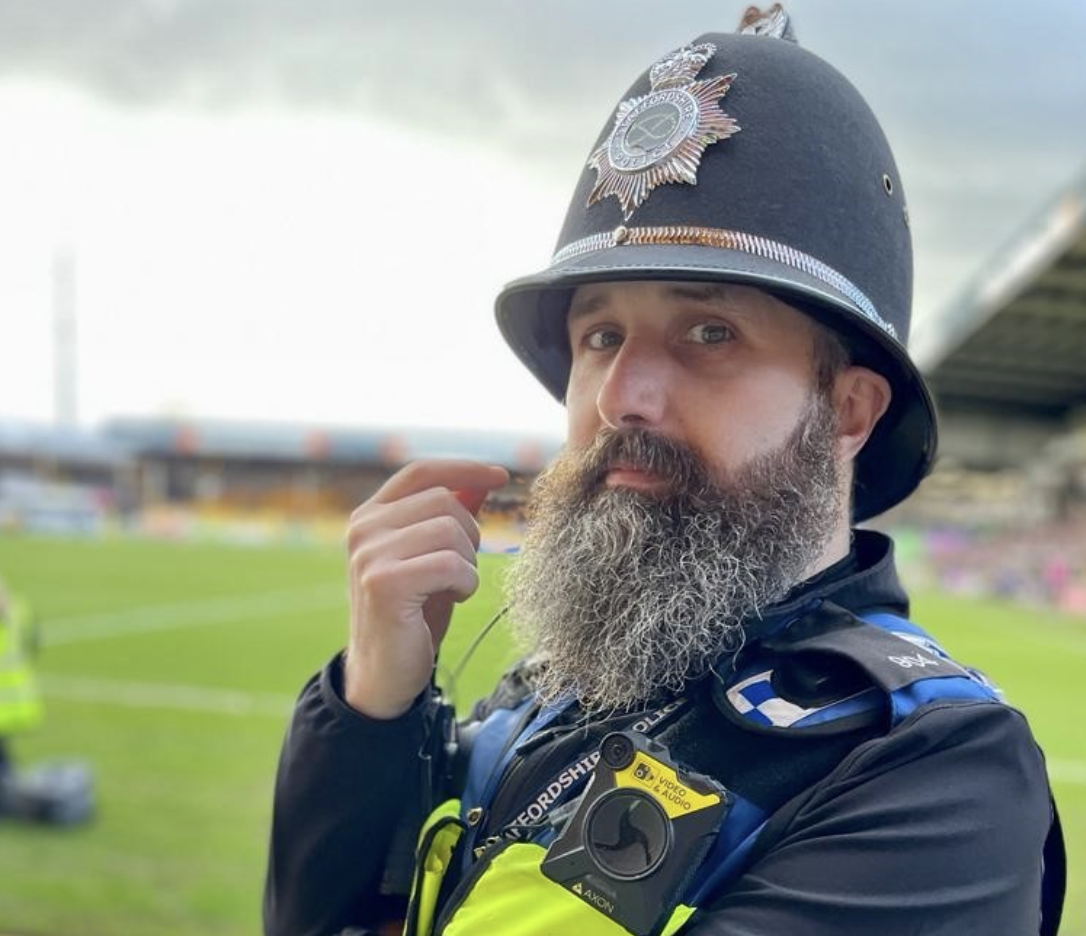Staffordshire Police Federation member PC Richard Lymer is hoping for success on and off the pitch this season as one of the Force’s three dedicated football officers.
Richard has spoken about the planning, and analysis that goes into matchdays to allow Staffordshire Police to be at the top of their game.
“There are so many different arms to being a dedicated football officer,” he said. “It’s not just turning up on a matchday and then you go home.”
As a dedicated football officer, Richard is responsible for Burton Albion and Tamworth.
He works alongside the club and with its supporters to ensure that matchdays pass as smoothly as possible.
“We treat each club’s fanbase as its own community so we work with them and engage with them,” he said.
“It’s a lot like a neighbourhood police officer role.”
Richard gathers information and intelligence for all of Burton’s fixtures, home and away, and likewise for games during Tamworth’s season.
This allows the Force to plan and allocate resources appropriately.
He said: “That document contains all sorts of information and intelligence on the fixture, such as travel assessments of how we expect fans to get to and from the game, historical information about how the fans have behaved before, how they behaved the last time the teams played.
“It includes information from our colleagues in the Force area the away team is visiting from, and we’ll prepare an assessment report to go to the host club when Burton are away.
“There’s a lot of information that has to be dissected, analysed and assessed and it all allows the silver commander to decide on how we’re going to police that fixture, what level of response we need.”
Richard’s role also includes providing a point of contact for the football clubs and also for St George’s Park national football centre near Burton.
And he attends the safety advisory group meeting, which brings together the police, the club safety officers, fire service, ambulance service, and the council to ensure fixtures are safe and enjoyable for fans.
But it’s on matchdays that the work comes together.
“I absolutely love match days,” Richard said. “When I first came into the role it was a steep learning curve.
“But when you do those first few fixtures there’s a sense of gratification.
“You get the information, you develop an assessment and put that to someone and they make an evaluation on your information and they develop a plan from it and because we work the fixtures you get to see your product being delivered.
“It’s nice at the end of the day when you can say you’ve had no issues and that the policing response has been proportionate to the information.”
Richard is one of three dedicated football officers in Staffordshire Police, with the other two working with Stoke City and Port Vale.
But he’s clear that, like the football on the pitch, it’s very much a team game off the pitch.
“We have planners for the bigger fixtures, who will look at radio channels, food for the officers, mutual aid,” he said.
“Resourcing is responsible for pulling together all of the officers. For example, if a silver commander decides on a police support unit (PSU), that’s 21 PCs, three sergeants and one inspector.
“It’s not just a case of someone sitting at their desk and saying ‘let’s throw a few cops at this’, it’s a lot more analytical, methodical and a lot of work goes into it.”
Richard is also the Force’s football engagement and inclusion officer.
It’s a role that sees him using the national sport to develop engagement opportunities and build strong relationships in communities.
That could include working with Staffordshire FA to develop inclusive football tournaments to advising the clubs on their processes and reporting of hate crime.
Another initiative included organising a match with members of Burton’s black communities and police officers and police community support officers for Black History Month.
And another was to put together a regional qualifier for the national KickOff@3 tournament for children from disadvantaged backgrounds.
“It’s all aimed at building those relationships between the police and the communities by using football and the inclusivity of football,” Richard said.









